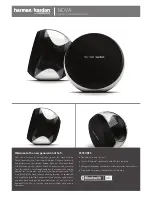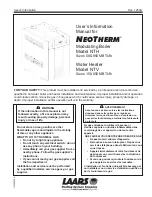
17
Wire Feed Roller Selection
The importance of smooth consistent wire feeding during MIG welding cannot be emphasized enough.
Simply put the smoother the wire feed then the better the welding will be.
Feed rollers or drive rollers are used to feed the wire mechanically along the length of the welding gun.
Feed rollers are designed to be used for certain types of welding wire and they have different types of
grooves machined in them to accommodate the different types of wire. The wire is held in the groove by
the top roller of the wire drive unit and is referred to as the pressure roller, pressure is applied by a tension
arm that can be adjusted to increase or decrease the pressure as required. The type of wire will determine
how much pressure can be applied and what type of drive roller is best suited to obtain optimum wire feed.
Solid Hard Wire - like Steel, Stainless Steel require a drive roller with a V shape groove for optimum grip
and drive capability. Solid wires can have more tension applied to the wire from the top pressure roller that
holds the wire in the groove and the V shape groove is more suited for this. Solid wires are more forgiving
to feed due to their higher cross sectional column strength, they are stiffer and don’t bend so easy.
Soft Wire - like Aluminium requires a U shape groove. Aluminium wire has a lot less column strength, can
bend easily and is therefore more difficult to feed. Soft wires can easily buckle at the wire feeder where the
wire is fed into inlet guide tube of the torch. The U-shaped roller offers more surface area grip and traction
to help feed the softer wire. Softer wires also require less tension from the top pressure roller to avoid
deforming the shape of the wire, too much tension will push the wire out of shape and cause it to catch in
the contact tip.
Flux Core / Gasless Wire - these wires are made up of a thin metal sheath that has fluxing and metal
compounds layered onto it and then rolled into a cylinder to form the finished wire. The wire cannot take
too much pressure from the top roller as it can be crushed and deformed if too much pressure is applied.
A knurled drive roller has been developed and it has small serrations in the groove, the serrations grip the
wire and assist to drive it without too much pressure from the top roller. The down side to the knurled wire
feed roller on flux cored wire is it will slowly over time bit by bit eat away at the surface of the welding wire,
and these small pieces will eventually go down into the liner. This will cause clogging in the liner and added
friction that will lead to welding wire feed problems. A U groove wire can also be used for flux core wire
without the wire particles coming of the wire surface. However it is considered that the knurled roller will
give a more positive feed of flux core wire without any deformation of the wire shape.
V Groove
U Groove
Knurled Groove
Wire
Wire
Wire
Top Pressure Roller
Top Pressure Roller
Top Pressure Roller
22mm
30mm
V Groove Drive Roller - Steel Wire
Part Number
Description
0.6-0.8V30/22
Drive Roll V Groove 0.6-0.8mm
0.8-1.0V30/22
Drive Roll V Groove 0.8-1.0mm
0.9-1.2V30/22
Drive Roll V Groove 0.9-1.2mm
1.0-1.2V30/22
Drive Roll V Groove 1.0-1.2mm
1.2-1.6V30/22
Drive Roll V Groove 1.2-1.6mm
Knurled Drive Roller - Flux Core Wire
Part Number
Description
0.6-0.8F30/22
Drive Roll Knurled 0.6-0.9mm
0.8-0.9F30/22
Drive Roll Knurled 0.8-0.9mm
0.9-1.2F30/22
Drive Roll Knurled 0.9-1.2mm
1.2-1.6F30/22
Drive Roll Knurled 1.2-1.6mm
U Groove Drive Roller - Soft Wire
Part Number
Description
0.8-1.0U30/22
Drive Roll U Groove 1.0-1.2mm
0.9-1.0U30/22
Drive Roll U Groove 0.9-1.0mm
0.9-1.2U30/22
Drive Roll U Groove 0.9-1.2mm
1.0-1.2U30/22
Drive Roll U Groove 1.0-1.2mm
Drive Rollers
10mm
Содержание KUMJR250SWF
Страница 43: ...43 9 19 18 7 8 3 1 20 2 21 4 5 25 13 13 ...
Страница 45: ...45 9 19 18 7 8 3 1 20 2 21 4 5 25 13 13 ...
Страница 47: ...47 9 19 18 7 8 3 1 20 2 21 4 5 25 13 13 ...
















































